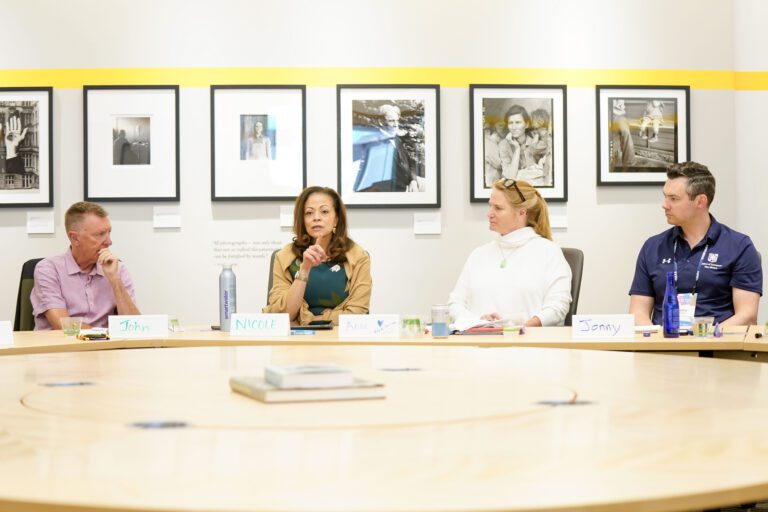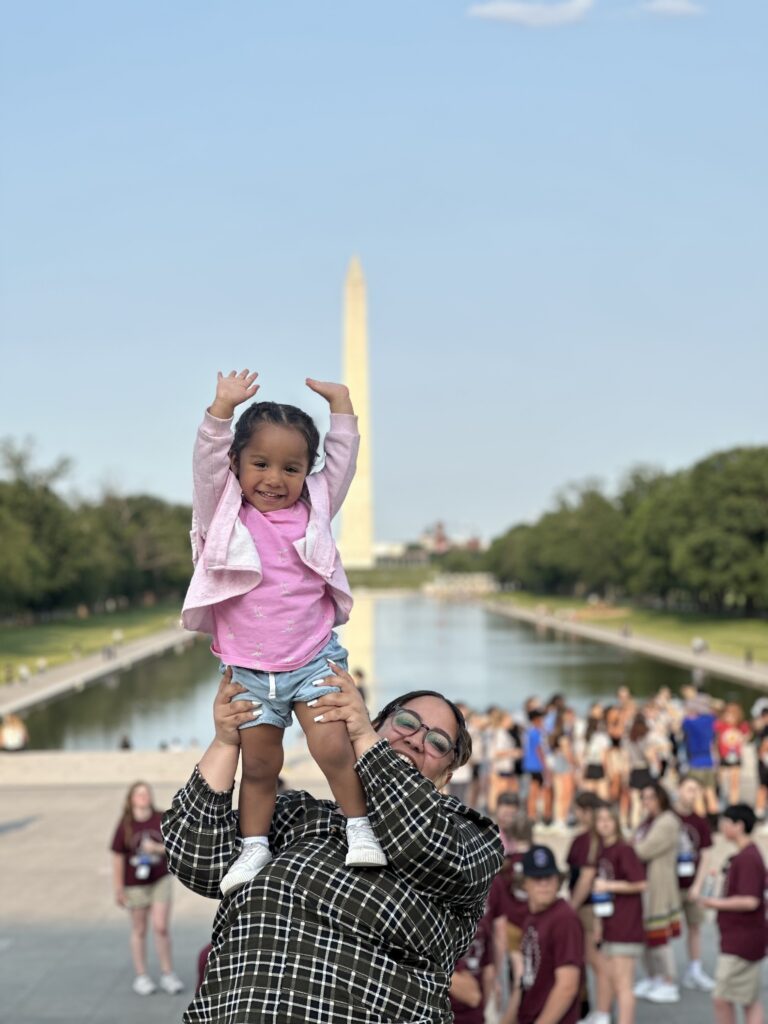An Ascender in Residence’s Reflections on Taking Pause and Re-Igniting One’s Vision
Dr. Wong is a program officer at the foundation where she leads their health program in advancing coverage and access to quality care for children and families and children’s healthy development. She is a 2012 Terrance Keenan Fellow for Emerging Leaders in Philanthropy.
As part of my three-month sabbatical from the David and Lucile Packard Foundation, I spent the last third of this gift of time with the Ascend team at the Aspen Institute in DC. In the past decade, much was accomplished and learned at the policy, practice, and community levels about children and families’ health and well-being, and 2015 was a seminal year in getting children and as importantly their parents health coverage and care (click here to learn more). Two-generation, whole family coverage is no longer wishful thinking – it’s right ahead of us if we are forward-thinking and disciplined enough to make it happen.
Though there is much work ahead in re-shaping the health coverage and care landscape at the state and federal levels, with the Affordable Care Act (ACA) in place the recent historic gains made for families now need to be secured and leveraged – with some additional incremental reforms – in the coming decade. This will not be easy and certainly the 2016 elections are key to such gains being further realized or dialed back. However, I’m seeing real glimmers on the horizon with many states innovating to bundle services, better coordinate care, creating accountability around prevention and evidence-based interventions, focusing on quality, child and parent outcomes, and much more. And that’s what we know of in the public sector; there is even more innovation underway in the private sector with potentially important implications for families.
Taking pause at Ascend opened my own mind to more deeply explore other pillars of the 2Gen framework, including postsecondary education opportunities and early childhood education. I had the space to brainstorm with state leaders (in Connecticut, Colorado and elsewhere) who are working to develop and foster healthy communities through two-generation approaches encompassing quality child care, early childhood education, postsecondary opportunities for parents, and socio-emotional health. And on parallel tracks, I had the opportunity to organize and/or engage in working sessions with Anne Mosle and the Ascend team on leadership development and the nuanced intersections of federal and state policy (including designing the first 2Gen State Policymakers Institute) to help further ignite and highlight cross-sector 2Gen innovation in states and localities.
Three other key insights I took back with me to my day job in philanthropy and policy:
1. Leadership Coordinated Across Domains Essential to Two-Generation Approaches
While our own institutions have their own theories of change, models, and strategies, we need to keep the brighter Northstar of multi-generational economic advancement in mind so that we work and invest across and collaboratively in the areas of early childhood education, postsecondary education and workforce development, social capital, and physical and emotional health. Not doing so risks being removed from the complex realities families face and thereby collectively falling short of our impact goals. Proactively exploring ways that levers under the Affordable Care Act and the Workforce Innovation and Opportunity Act (WIOA) could help advance breakthrough two-generation efforts.
2. Networking Leaders and Tapping into their Resources a Key Multiplier
Understanding the magic mix of personal and skills-based development to ignite and support current and emerging transformative leaders, investing in mission-focused leadership development programs and then weaving a diverse network together will be a major multiplier in advancing and spreading two-generation approaches. As we look forward we need to better reach and connect talent around us to ensure real two-generation work is durable and sustainable over time.
3. Families Need to be Authentically Engaged in the Design and Implementation of 2Gen Policies, Programs and Practices – But Doing So Is Harder than the Aspiration
As our individual and collective efforts take further shape, how do we know what actually works that supports and helps families achieve greater sufficiency and connection? And how do we best keep an open feedback loop with families of various backgrounds, from different communities and countries of origin, embedded in our planning and implementation efforts, knowing that focus groups provide early and mostly point-in-time perspectives? Multiple-generations will certainly require different modes of engagement, and we ought to spend more resources designing and testing what works (but also expect and be more transparent about failing forward quickly) within the complex context of families’ lives before making even larger and longer investments of financial and human capital.
To say my time with Ascend helped illuminate insights would not do justice to the shared visioning and dynamic exchange of breakthrough ideas and learning that this resident and her generous hosts engaged in last year. I am immensely grateful to Anne Mosle and Marjorie Sims for their generosity, humanity and humor in co-creating this inaugural residency at Ascend. And finally my deepest thanks to Meera Mani, 2012-13 Ascend Fellow and my ever-inspiring colleague at the Packard Foundation, who understood and encouraged my taking time to pause and reinvigorate by jumping deeper into a more complex, cross-sector space. As you contemplate goals for 2016 this may be one to add to the mix.
*Ascend at the Aspen Institute’s Innovator in Residence (IIR) position is designed for individuals interested in focusing their content expertise on two-generation approaches. For a set period of time, an Innovator in Residence works closely with the Ascend team to develop, test or expand a 2Gen innovation in practice, policy or philanthropy. If you are interest in Ascend’s IIR, please contact Marjorie Sims at Marjorie.sims@aspeninstitute.org.
Related Posts



